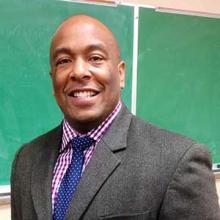Baldwin and Racial Justice12
Feb 12, 2018James Baldwin, essayist, novelist, playwright, and searing social critic, has been enjoying a resurgence of interest recently. There is no doubt that Baldwin’s thinking is just as relevant today as it was in the mid twentieth century. Sadly, there is so much that has not yet changed.

Comments (2)
Tim Smith
Monday, August 3, 2020 -- 10:25 PM
I watched this with my wifeI watched this with my wife last night... 'I am not your Negro'.
There is something in the air. Would that something still be there without Baldwin. I think not so clearly. Would that I could be so sharp as James Baldwin.
So good to hear this show again. Or was it the first time... i didn't remember this one. Ken's understanding of Baldwin's love is deep. It helps me come to terms.
Daniel
Thursday, July 21, 2022 -- 10:32 AM
Although this comment wasAlthough this comment was posted two years ago, it expresses the author's sincere commitment to a shared understanding which promises to be much longer lasting. Because this particular show is now scheduled for rebroadcast, the opportunity is afforded to address this participant directly about what has expressly been of help at that time: the coming to the terms. Do you remember which terms these were? Some suggestions to which I would like to come are "oppression", a static state of structural coercion, "repression", a dynamic process by which creative self-assertion of the oppressed is reactively opposed in an over-compensatory manner, and "rebellion", an acute collective action amongst the oppressed consistently met with attempts to repress. Are these three terms ones to which one can come? Their wide application to elements of U.S. history and culture make them richly rewarding for those whom they uniquely concern, providing our thoughtful proximity is sufficient.